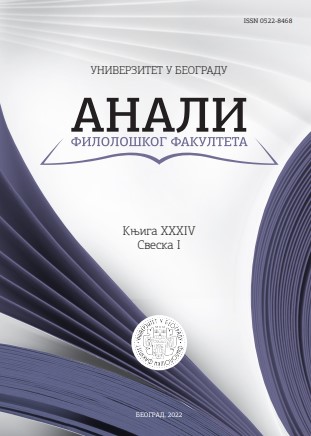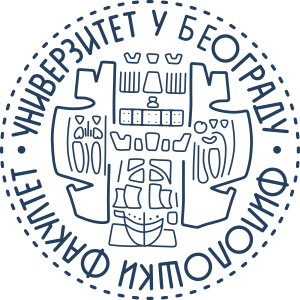English Pronunciation Models in the Dialogue of Cultures: Attitudes and Concerns in Teacher Education in Russia
DOI:
https://doi.org/10.18485/analiff.2022.34.1.4Кључне речи:
pronunciation, English as a Foreign Language (EFL), English as a Lingua Franca (ELF), learners' attitudes, teacher educationАпстракт
The global spread of English has resulted in a change in priorities with regards to pronunciation. The “English as a Lingua Franca” model has taken the dominant position worldwide. However, there is little consensus among researchers and practitioners on which pronunciation model, English as a Foreign Language (EFL) or English as a Lingua Franca (ELF), should be applied in teacher education. This study investigates the attitudes to EFL and ELF pronunciation models amongst participants in teacher education in Russia (students and lecturers of the Institute of Foreign Languages, Moscow State Pedagogical University). The study was mixed-method, quantitative and qualitative: the quantitative data were processed by means of descriptive statistics, and for the analysis of qualitative data, content analysis was applied. It involved one hundred and twenty-two students answering the questionnaire and twenty university lecturers responding to semi-structured interview questions. The results show that both students and lecturers would prefer the EFL model to be used in pronunciation instruction in the course of professional teacher education. From the pedagogical perspective, the key findings demonstrate that a balanced combination of the traditional EFL approach and ELF awareness may enhance the quality of pronunciation teaching in teacher education programmes in Russia.
Downloads
Downloads
Објављено
Број часописа
Рубрика
Лиценца

Овај рад је под Creative Commons Aуторство-Дели под истим условима 4.0 Интернационална лиценца.
Authors who publish with this journal agree to the following terms:
- Authors are confirming that they are the authors of the submitting article, which will be published (print and online) in the journal Anali filološkog fakulteta by the Faculty of Philology, University of Belgrade (Faculty of Philology, Studentski trg 3, 11000 Belgrade, Serbia). Author’s name will be evident in the printed article in the journal. All decisions regarding layout and distribution of the work are in hands of the publisher.
- Authors guarantee that the work is their own original creation and does not infringe any statutory or common-law copyright or any proprietary right of any third party. In case of claims by third parties, authors commit their self to defend the interests of the publisher, and shall cover any potential costs.
- Authors retain copyright and grant the journal right of first publication with the work simultaneously licensed under a Creative Commons Attribution-ShareAlike 4.0 International License that allows others to share the work with an acknowledgement of the work's authorship and initial publication in this journal.
- Authors are able to enter into separate, additional contractual arrangements for the non-exclusive distribution of the journal's published version of the work (e.g., post it to an institutional repository or publish it in a book), with an acknowledgement of its initial publication in this journal.
- Authors are permitted and encouraged to post their work online (e.g., in institutional repositories or on their website) prior to and during the submission process, as it can lead to productive exchanges, as well as earlier and greater citation of published work.





